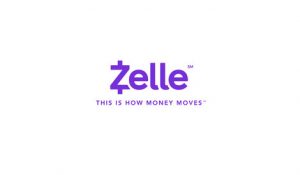PNC Bank customers like Zelle, but fraudsters liked the person-to-person payments service a little too much after PNC rolled it out last July, according to a bank executive.
Paul Trozzo, senior vice president and product group manager, on Tuesday dubbed Zelle “very successful” for the Pittsburgh-based bank, a unit of The PNC Financial Services Group Inc. But Trozzo told attendees at the NACHA Payments 2018 conference in San Diego that “there absolutely were some growing pains.” Specifically, fraud for a time hit “double digits” in basis points of payment volume, Trozzo said at a panel session about Zelle and the new Real Time Payments service from The Clearing House.

Fraud now is running at a more “normalized” rate of 5 to 6 basis points (0.05% to 0.06%) of Zelle volume, according to Trozzo, though the bank continues to work on reducing it. PNC hasn’t increased what Trozzo said is its conservative transaction limit of $1,000, though he indicated the bank could re-examine that limit as Zelle’s one-year anniversary comes up.
Today, PNC customers are generating about 15,000 transactions a day on Zelle, and about 3,000 customers are signing up for the service daily. “It’s continuing to grow as people start seeing value and benefits,” Trozzo said. He also reported that PNC continues to offer Popmoney, the P2P service from processor Fiserv Inc. the bank provided before rolling out Zelle, in part because some customers like Popmoney and see no reason to switch.
Meanwhile, Zelle had “really good numbers for the first quarter,” said another panelist, Laura Weinflash, vice president of product management at Early Warning Services LLC, the technology company that runs Zelle and is owned by some of the nation’s biggest banks. The service, which is now offered by a number of large banks as well as smaller financial institutions through processor connections, posted 85 million transactions, up 14%, and is adding about 100,000 users per day, she said.
Zelle, however, got a black eye in April when The New York Times reported that some users were getting hit with fraud for various reasons, including a lack of transaction notification in some cases and an apparent lack of vetting of recipients’ identifiers such as phone numbers or email addresses, which Zelle uses to get money to their bank accounts. Zelle told the newspaper that fraud was under control and that there have been “very few” such incidents.
Payments analyst Aaron McPherson, vice president for research operations at Maynard, Mass.-based Mercator Advisory Group Inc., says the Times’ story “was based more on anecdotal evidence than on real research.” Still, some banks’ Zelle “implementations were rushed, without enough attention paid to making sure that alerts were in place,” he tells Digital Transactions News by email. And some customers assumed, incorrectly, that they were automatically covered by the zero-liability policies for fraudulent payment card transactions.
McPherson says Zelle’s early fraud experience bears some similarity to that of Apple Pay after Apple Inc. rolled out the mobile-payment service in late 2014. Criminals discovered that they could load fraudulent cards into Apple Pay wallets, a problem Apple quickly corrected.
“I have no doubt that the [Zelle] problems will be fixed, and that the system is very safe overall; however, first impressions are difficult to overcome, and this will be a headwind on future growth,” he says.
McPherson says banks should consider implementing some form of a fee-based guarantee that gives Zelle users protection when dealing with people they do not know well, “rather than simply complaining that they are using the service in the wrong way.”





